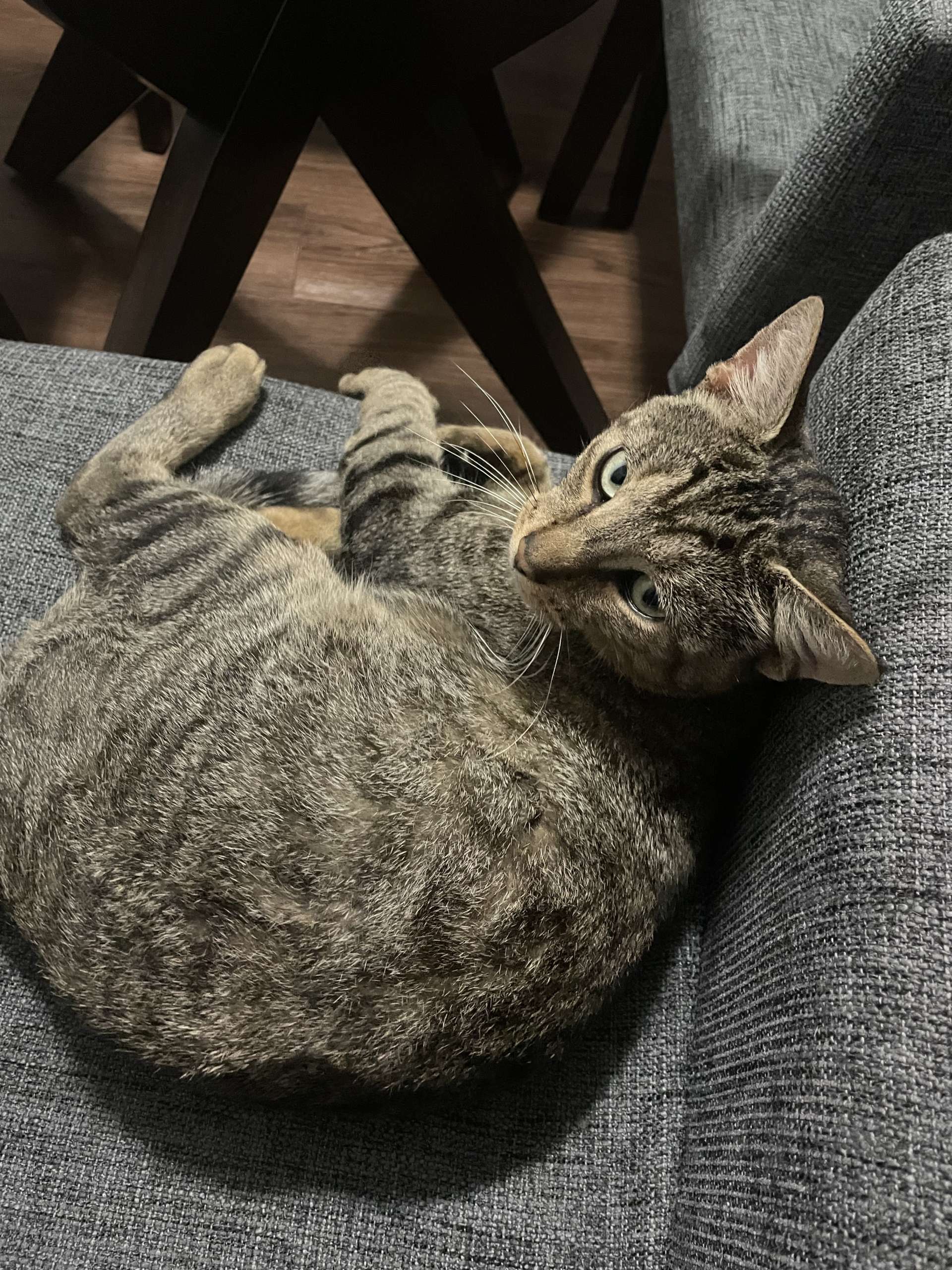For those that don’t know, my outdoor son (cat), JR [Julian Roosevelt] has been quietly dealing with feline leukemia since I took him in about a year or so ago. I got him insurance (I know) and started feeding him and caring for him regularly.
Feline leukemia, also known as feline leukemia virus (FeLV), is a viral infection that affects cats. It can have significant health implications and requires careful attention and management. It can be transmitted through close contact with infected cats. It primarily affects the immune system, making cats more susceptible to infections, anemia, and certain types of cancer.
It’s important to be aware of the warning signs that may indicate feline leukemia. These can include:
- Lethargy and weakness
- Loss of appetite and weight loss
- Poor coat condition
- Persistent fever
- Enlarged lymph nodes
- Diarrhea or vomiting
- Respiratory problems, such as labored breathing
If you notice any of these symptoms in your cat, it is crucial to consult with a veterinarian promptly.
To determine if a cat has feline leukemia, a veterinarian will perform specific tests, such as a blood test. These tests can detect the presence of the virus in the cat’s bloodstream.
The prognosis for cats with feline leukemia varies depending on several factors, including the cat’s overall health, the presence of other concurrent infections or diseases, and the stage of the disease. Unfortunately, feline leukemia can have a guarded to poor prognosis, especially if the infection has progressed.
While there is no cure for feline leukemia, supportive care is essential in managing the condition. This may involve treating secondary infections, addressing symptoms, and providing proper nutrition. Regular veterinary check-ups and monitoring are crucial to ensure early detection of any complications.
Prevention is crucial when it comes to feline leukemia. Vaccination is available and is typically recommended for kittens and cats at risk of exposure, such as those living in multi-cat households or going outdoors. It’s important to discuss vaccination strategies with a veterinarian.
To manage feline leukemia, it is essential to minimize exposure to other cats, especially those who have an unknown FeLV status. Keep infected cats separated from uninfected cats to prevent transmission. Regular veterinary check-ups and monitoring the cat’s health can help catch any potential issues early.
It’s important to remember that every cat’s situation is unique, and the guidance of a veterinarian is crucial in managing feline leukemia. They can provide tailored advice and treatment options based on your cat’s specific circumstances.
Feline leukemia is a serious viral infection that requires careful attention and management. Recognizing the warning signs, seeking prompt veterinary care, and taking preventive measures can help ensure the best possible outcome for your cat’s health and well-being.
—-
JR — A Tale
Once upon a time, in a charming neighborhood, there lived a brave and resilient cat named JR. JR had been diagnosed with feline leukemia, but his story was one filled with hope and resilience.
JR’s journey began when he was a tiny stray kitten, wandering the streets in search of food and warmth. One compassionate soul named Robert discovered JR and couldn’t resist his adorable face and playful spirit. Robert decided to take JR into his home, not knowing about his condition at the time.
After JR’s diagnosis, Robert was devastated but determined to provide JR with the best life possible. He sought guidance from a knowledgeable veterinarian who specialized in feline leukemia care. With the veterinarian’s support and a comprehensive care plan, Robert embarked on a journey of love, compassion, and unwavering dedication to JR’s well-being.
Robert transformed his home into a safe haven for JR. He provided a cozy bed, stimulating toys, and plenty of affectionate cuddles. Recognizing the importance of proper nutrition, Robert worked closely with the veterinarian to develop a balanced diet that would support JR’s immune system and overall health.
Despite the challenges posed by feline leukemia, JR’s spirit remained indomitable. He found joy in chasing shadows, pouncing on his favorite toys, and curling up in Robert’s lap for comforting snuggles. JR’s resilience inspired Robert, reminding him of the incredible strength that can be found within every living being, regardless of their circumstances.
Over time, JR’s health remained stable, thanks to the diligent care provided by Robert and the veterinary team. He thrived in the love and attention he received, defying the odds and proving that even in the face of adversity, happiness and quality of life could be attained.
JR’s story touched the hearts of those who knew him. Robert shared JR’s journey on social media, creating a community of support and encouragement. JR became an inspiration for others facing similar challenges, offering hope and reminding them that life’s obstacles could be overcome with love, proper care, and a positive outlook.
As the years went by, JR continued to defy expectations, cherishing each day to the fullest. He became a symbol of resilience and a testament to the power of compassion and dedication. His story spread far and wide, inspiring people to embrace and care for cats with feline leukemia, and to believe in the possibility of a fulfilling and joyful life despite the condition.
JR’s journey is a testament to the strength of the human-animal bond and the transformative power of love. His story continues to inspire others, fostering hope and encouraging individuals to provide care and support for cats with feline leukemia. JR’s legacy serves as a reminder that every cat, regardless of their health challenges, deserves a chance at a life filled with love, joy, and dignity.

